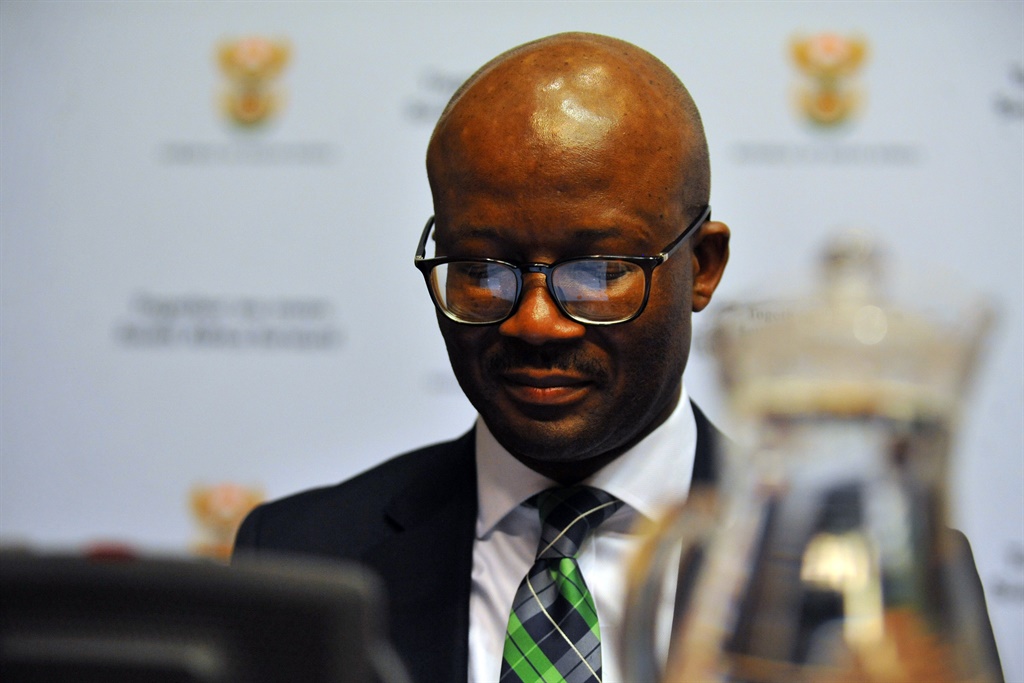Those were the words of finance minister Tito Mboweni, today during media brief on continued support measures for South Africans whose livelihoods have been affected by recent ugly scenes that made all wrong reasons.
During his address, the minister also confirmed R38.85billion support package to businesses affected by lootings and the Covid-19 pandemic.
Since this will not be borrowed, according to finance director general Dondo Mogajane, the bulk of the money is largely from strong tax revenues from the mining sector that will help fund most of government’s R38.85 billion support package to South Africans.
Other factor identified by the minister, is the reintroduction of the Social Relief of Distress Grant – which will be in place until March 2022. The reinstatement will cost R27 billion, according to Mboweni.
“Looking after our own is not just a cost, but is an investment that we should see going forward.”
Government will also provide R3.9 billion to the state-owned SA Special Risk Insurance Association (Sasria) and another R5 billion will go towards employment tax incentives.
As to whether these measures will impact government’s fiscal consolidation plan, acting deputy director-general at Treasury Edgar Sishi said that government is “sufficiently” ahead of its revenue targets to accommodate the support package.
“The package can be accommodated without an increase in debt,” Sishi added. “We are comfortable to deal with additional spending as long as it remains temporary and a once-off.”
South African Revenue Service (SARS) Commissioner Edward Kieswetter said the tax service has just seen the best first quarter revenue in the past three years. “This augurs very well for us,” he said, adding that the better-than-expected performance came primarily from the mining companies, but also manufacturing and financial services.
Sishi said that South Africa’s fiscal strategy also remains on track. “We do not anticipate the fiscal deficit will increase as a result of this package and we do not anticipate that the debt trajectory will change,” he said.
However, risks to the fiscal position still remain. The unrest in July, for example, also poses risks to revenue collections.
But government representatives made clear that the country can only afford the extension of the R350 grant until March 2022 without incurring extra debt.
State-owned insurer Sasria and insurance companies will be able to assist insured businesses affected by the recent riots and unrest which has resulted in property damage.
“We anticipate that this will cost maybe R15 billion to R20 billion; between Sasria and National Treasury, we will have to make sure these are met.”
Treasury has also allocated additional amounts of R250 million to the policy and R700 million to the South African National Defence Force, which have been deployed to assist in peace and stability, Mboweni said.
The Unemployment Insurance Fund has set aside R5.3 billion to assist with extension of the Covid-19 Temporary Employer-Employee Relief Scheme. This is meant to cover those who lost their jobs due to lockdowns.
The budgets of the departments of small business development and trade, industry and competition will be reprioritised to allow for R2.3 billion in support to small, medium and micro-enterprises.
Deferrals for PAYE and the Employment Tax Incentive will kick in from 1 August, for four months. Treasury will issue a detailed note of the tax changes.
The tax measures are expected to amount to R5 billion.
While government will not be borrowing more to fund the support package, Mboweni said that bond auctions will continue. Treasury is still engaging with the World Bank to secure a loan for funding vaccines. “World Bank funding is available to South Africa, at a reasonably lower interest rate than market rates,” Mboweni said.
“As a country we have crossed the Rubicon of whether we can borrow from the IMF and the World Bank or not. We have crossed that Rubicon … We can borrow from the World Bank and IMF, but for very clear purposes,” he said.
With tongue -in –cheek Mboweni invited the country to start visiting their own, and the starting point should be at Hoedspruit- Limpopo, as part of local tourism.
Image (Finance DG Dondo Mogajane, thanks mining sector taxes that would help prioritise almost R40bn to help businesses in SA).

